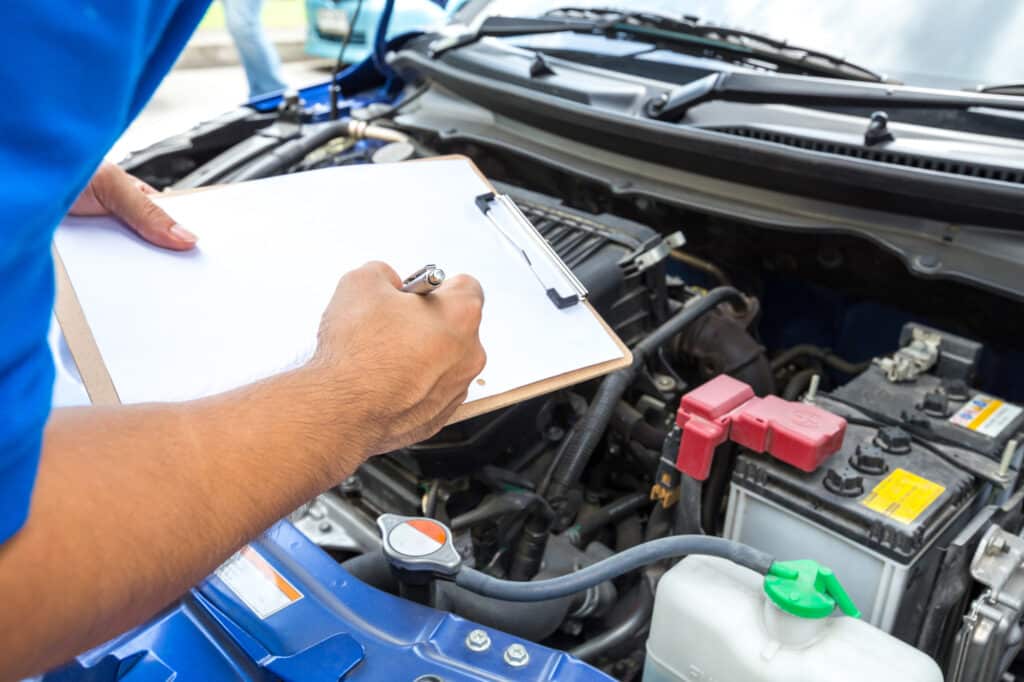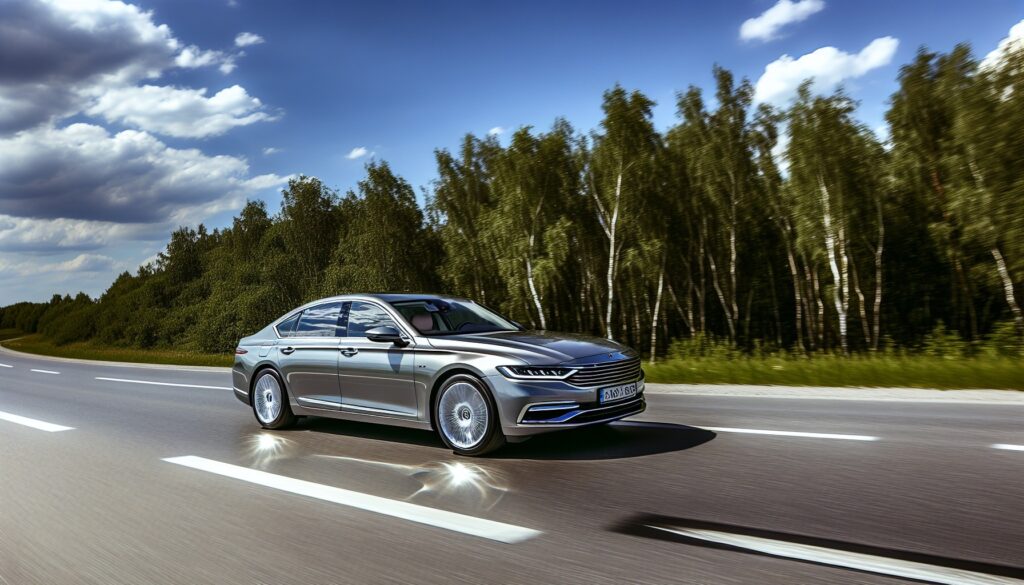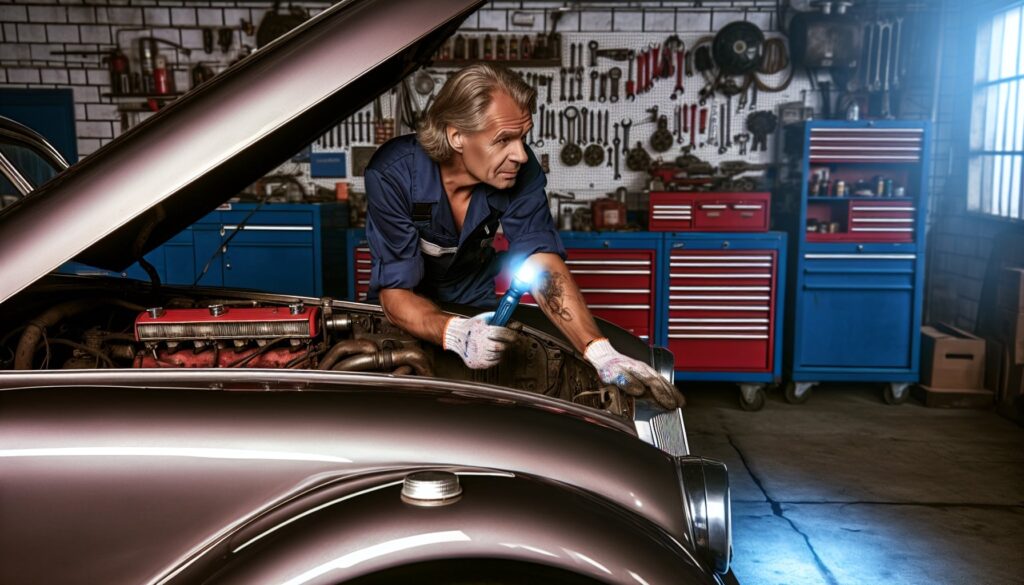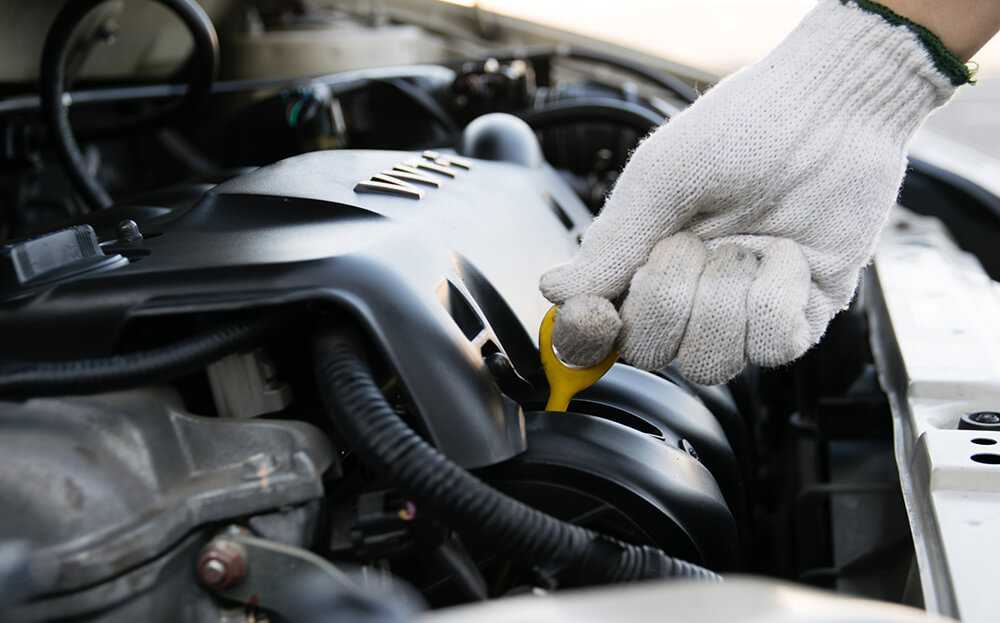The best extended car warranty is called Exclusionary Coverage. Exclusionary coverage is closest to the original factory warranty that comes with new cars. However, when it comes to protecting your investment in your vehicle, understanding what is the best extended car warranty available is crucial. This guide provides a straightforward comparison of top-tier warranty providers, explains the varied coverage options, and equips you with the necessary know-how to decide which warranty aligns with your specific needs without any fluff. We’ll delve into provider reputation, cost considerations, and service excellence to help you navigate through the clutter and find a warranty that offers real value.
Discover What Is the Best Extended Car Warranty of 2024: Ultimate Guide
Exclusionary coverage is the most comprehensive extended warranty, similar to a factory warranty, but it’s imperative to read the specific exclusions carefully.
Top extended warranty providers, such as Endurance, CARCHEX, autopom!, CarShield, and Olive, Rapid Auto Protection, offer different benefits including roadside assistance, rental coverage, and customer satisfaction through various payment options.
Powertrain warranties cover essential components like the engine, transmission, and drive systems, but it’s crucial to understand their scope and any exclusions detailed in the fine print.
Defining the Apex of Extended Car Warranty Coverage

At the pinnacle of extended car warranties stands Exclusionary coverage. This superior form of extended warranty is designed to cover your entire vehicle, excluding only a specific list of components. Think of it as a safety net for your car, protecting major components like:
- the engine
- the transmission
- the axles
- the steering
- the air conditioning
It may not cover less significant parts like spark plugs, batteries, and tires, which are likely to be covered by a manufacturer’s warranty.
Often likened to a ‘bumper-to-bumper’ warranty, Exclusionary coverage provides a level of protection similar to that of a new car’s factory warranty. With this type of coverage, you’re essentially replicating the experience of driving a new car with the assurance that almost every part of your vehicle is protected. Now that’s peace of mind!
As with any product or service, it’s vital to be well-informed about what you’re signing up for. Thoroughly understanding the specific exclusions by reading the fine print is the key to fully benefiting from Exclusionary coverage and bypassing any unexpected surprises in the future.
The Breadth of Exclusionary Coverage
One of the main selling points of Exclusionary coverage is its breadth. This type of extended warranty cover is akin to a manufacturer’s warranty, protecting an extensive range of vehicle systems and parts. In fact, it’s also referred to as the ‘bumper-to-bumper’ warranty due to its comprehensive nature.
Exclusionary coverage essentially echoes the original factory warranty that new cars come with, offering similar terms and protections. This means that you’re not just getting a warranty; you’re getting a warranty that matches, if not surpasses, the level of coverage that brand new cars come with.
Thus, if you’re a vehicle owner who prioritizes security and peace of mind, choosing Exclusionary coverage can give you the experience akin to owning a new vehicle, minus the hefty price tag.
Why Exclusionary Coverage Stands Out for Used and Luxury Vehicles
Used and luxury vehicles present unique challenges when it comes to extended warranties. Some warranty providers may refuse coverage for high-end brands like:
- BMW
- Audi
- Jaguar
- Land Rover
- Porsche
- Mercedes-Benz
- Certain American luxury cars
But fret not! There’s a solution to every challenge.
If you own a used or luxury vehicle, choosing a direct warranty provider like Endurance can greatly benefit you. Here’s why:
- Endurance offers a wide range of coverage options and long duration plans.
- With Exclusionary coverage, you can enjoy comprehensive protection.
- This mitigates the risk of expensive repairs that can put a dent in your wallet.
Undoubtedly, the peace of mind Exclusionary coverage offers is priceless for used or luxury car owners. However, remember that selecting the appropriate warranty is as crucial as picking the right car. Therefore, thorough research and careful selection of a provider that fits your needs is imperative.
Unveiling Top Extended Warranty Providers

So, who are the titans in the world of extended car warranties? Leading the pack among extended car warranty companies is:
- Endurance, recognized as the company offering the best extended vehicle warranty. Other notable providers offering Exclusionary coverage include:
- CARCHEX
- autopom!
- CarShield
- Olive
- Rapid Auto Protection
Each with their unique offerings and perks.
These providers don’t just stop at offering coverage for your vehicle. They go the extra mile by including additional perks such as roadside assistance, rental car coverage, and trip interruption services, ensuring you’re never stranded in case of a breakdown. For example, CARCHEX provides rental car reimbursement, roadside assistance, and trip interruption coverage, showcasing the flexibility of their Exclusionary plans.
While the cost of an extended warranty can be a concern, these providers offer flexibility in payment options and reasonable pricing, earning points for customer satisfaction. Moreover, opting for extended warranties from third-party providers like these can offer significant cost savings and flexibility compared to dealership warranties. So, when it comes to extended car warranties, remember that the best providers are those that offer comprehensive coverage, flexible payment options, and excellent customer service.
Powertrain Protection: The Heart of Your Vehicle

Now, let’s shift gears and discuss powertrain warranties. A powertrain warranty covers the most crucial components of your vehicle that contribute to its propulsion – the engine, transmission, and drive systems. This includes vital engine parts such as the crankshaft, camshaft, pistons, and other internal components essential for the engine’s operation.
If your vehicle is equipped with a turbocharger or supercharger, rest assured that these factory-installed components are also covered under the powertrain warranty. What’s more, powertrain warranties typically extend coverage to four-wheel and all-wheel drive systems, encompassing the transfer case that directs engine torque to the front and rear axles.
In a nutshell, a powertrain warranty serves as a shield for your vehicle’s heart and muscles. It guarantees protection for the pivotal components that power your vehicle and ensure its movement, thereby instilling you with the confidence to embark on any journey without anxiety.
Transmission Assurance
The transmission is like the brain of your vehicle, translating the engine’s power into motion. The powertrain warranty covers the main component responsible for this vital function, ensuring that your vehicle keeps moving smoothly.
The powertrain warranty extends beyond just the transmission, covering all significant parts from the torque converter to the transmission mounts. It also includes the differential, a component that manages wheel speeds during turning.
With such comprehensive coverage, you can drive with peace of mind, knowing that your vehicle’s vital components are protected. After all, a smooth ride is a joyous ride!
Drive System Safeguards
But what about the drive systems? The good news is, extended warranties also have you covered there. For vehicles with four-wheel drive or all-wheel drive, the powertrain warranty covers the transfer case, including the main shaft, output shafts, and bearings.
This means that the parts within the front/rear wheel drives, in addition to four-wheel/all-wheel drive systems, are safeguarded against defects and malfunctions. So, whether you’re navigating city streets or tackling rugged terrain, you can drive with confidence, knowing that your vehicle’s drive systems are protected.
In essence, an extended warranty ensures that your vehicle’s key components, from the engine to the transmission and drive systems, are well-protected. Because when it comes to your vehicle, it’s not just about getting from point A to point B – it’s about enjoying the journey!
Deciphering the Fine Print
When it comes to extended car warranties, the devil is often in the details. Exclusionary coverage, often likened to ‘bumper-to-bumper’ warranties, typically encompasses nearly all vehicle components, detailing a list of exclusions within the contract rather than stating what is covered. This means that understanding exactly what is and isn’t covered is crucial to making the most of your warranty.
Common exclusions in extended car warranties include:
- Routine maintenance
- Body and interior damage
- Damage from accidents or negligence
- Environmental factors
- Unauthorized repairs
Misunderstandings regarding coverage can also occur for damages caused by collisions, abuse, or natural disasters, which generally void the warranty.
Thoroughly reading and understanding the fine print is essential to dodge any unforeseen costs and disappointments in the future. After all, a well-informed customer is a satisfied customer!
Cost Versus Value: Analyzing Extended Car Warranty Pricing

Let’s talk money. The extended car warranty cost is influenced by various factors, including the length or mileage of the contract, the age, make, model, and reliability of the car, and the actuarial tables used by warranty providers. On average, extended car warranties cost around $1,400, with the total price ranging between $2,000 and $3,500. So, are extended car warranties worth it? It depends on your individual needs and preferences.
The cost of extended warranties can vary depending on their duration. For warranties lasting between three to six years, it can range from $1,600 to $4,500. This is influenced by factors such as the make and model of the car and its reliability. Moreover, if your vehicle is a hybrid or an electric vehicle (EV), the manufacturer may provide coverage for specific components for up to 150,000 miles, which can impact the cost-benefit analysis of extended warranties.
Although the cost of an extended warranty may appear high, it’s important to balance it with potential repair costs. The peace of mind and financial stability provided by extended warranties often surpass the initial cost, rendering them a sound investment for numerous vehicle owners.
Comparing Comprehensive and Specialty Coverage Options
When it comes to extended car warranties, you have a buffet of options. At one end of the spectrum, you have bumper-to-bumper warranties, also known as comprehensive coverage or new vehicle limited warranties. These protect nearly all vehicle components from damages and necessary repairs. At the other end, you have powertrain warranties, which focus on the engine, transmission, and drivetrain components.
Powertrain warranties generally last longer than bumper-to-bumper warranties, which expire sooner, potentially leaving significant vehicle components without protection. This makes the decision between powertrain and more comprehensive extended warranty coverage an important one, especially since the most costly repairs are often powertrain-related.
Some manufacturers also offer additional coverage perks like hybrid model coverage and roadside assistance, which can enhance the value of standard bumper-to-bumper warranties. Ultimately, the choice between comprehensive and specialty coverage options depends on your vehicle’s needs and your peace of mind.
Choosing the Right Warranty for Your Needs

How do you select the ideal warranty for your needs? Start by considering the potential major repair costs that you can’t easily cover with your available funds. Then, investigate your vehicle’s repair history and linked costs to ascertain whether an extended warranty is financially feasible for you.
It’s also essential to evaluate if the cost of the extended warranty is justified compared to the potential costs of repairs. Coverage should be a top priority when choosing between extended warranty companies, and you should examine the specific repairs and components covered by various warranty plans, along with any deductibles or exclusions that may apply.
Finding the Best Fit for Used Cars
If you own a used car, finding the right warranty can be a bit more complex. Used car warranties can vary in cost based on factors such as the age, make, and model of the vehicle, as well as the level of coverage desired. Some vehicle manufacturers and credit card benefits can provide coverage for used cars, potentially making an extended warranty purchase unnecessary.
However, if you decide to go for an extended warranty, remember that it can be purchased from a car dealer. While adding it to a loan may offer convenience, it’s not obligatory. Plus, having a transferable warranty can increase the resale value of your vehicle, offering an advantage when selling or trading in.
Weighing the Pros and Cons
Like any investment, it’s important to consider the advantages and disadvantages of extended warranties. However, they can be worthwhile if they cover costly repairs for a mechanical or electrical breakdown. On average, the savings for repairs with a service contract is around $900, which requires weighing against the upfront cost of the warranty.
On the other hand, extended warranties may not be beneficial for owners of very reliable vehicle models that infrequently require repairs. Moreover, reputable companies typically offer full refunds within 30 days of purchase and prorated refunds thereafter, adding a layer of flexibility for the consumer.
Additionally, auto extended warranty plans, also known as extended car warranty plans, are generally transferable to new owners, enhancing the resale value of a vehicle. Understanding how extended car warranties work can help you make an informed decision. And if you ever change your mind, you can cancel the extended car warranty by contacting the contract administrator and providing a written odometer statement.
Customer Service Excellence and Provider Reliability
When choosing an extended car warranty provider, customer service excellence and provider reliability are key factors to consider. A provider’s history of customer satisfaction significantly impacts their reputation in the extended car warranty industry. For instance, some factors to consider when choosing an extended car warranty provider are:
- Customer service excellence
- Provider reliability
- A provider’s history of customer satisfaction
- Better Business Bureau rating
- Google Reviews rating
For example, ForeverCar holds an A+ rating with the Better Business Bureau and an average of 3.4-stars based on Google Reviews.
Unfortunately, issues with claim payments from third-party extended warranty companies have been a source of customer dissatisfaction. Therefore, it’s crucial to identify if a warranty provider is a direct administrator or a middleman, as it can influence the efficiency and ease of the claims process.
Public reviews and the knowledge level of company representatives on product lines and policies also provide insight into recent customer interactions with extended warranty companies. So, before you commit to an extended warranty provider, do your homework and choose a provider that values customer satisfaction and has a proven track record of reliability.
Navigating Repair and Claim Processes
You’ve secured your extended warranty, but how do you maneuver through the repair and claim processes? To file a claim, you need to confirm active coverage, review the contract terms, gather required documents, and reach out to the warranty provider for the approval process.
It’s also crucial to determine which repair facilities are authorized under the warranty, particularly when dealership warranties may confine repairs to their dealerships. Claims are commonly initiated by the repair facility, where they contact the warranty provider to confirm the claim’s validity and conduct a vehicle assessment.
Understanding the payment terms of the warranty contract is also essential. Some providers pay the mechanic directly for covered repairs, while others might require customers to pay upfront and later submit documentation for reimbursement.
By understanding the repair and claim processes, you can ensure a smooth and hassle-free experience should your vehicle need repairs.
Summary
Choosing an extended car warranty can seem like a daunting task. But with the right information, it becomes a manageable and rewarding endeavor. As we’ve explored in this blog post, extended car warranties offer a range of coverage options, from Exclusionary coverage, which covers nearly all vehicle components, to powertrain warranties that focus on the engine and drivetrain.
The decision on the best extended car warranty ultimately depends on your vehicle’s needs, your financial situation, and your peace of mind. By considering factors such as potential repair costs, vehicle reliability, coverage options, and the reputation of the warranty provider, you can make an informed decision that ensures the smooth running of your vehicle and your peace of mind on the road.
Frequently Asked Questions
What components are covered for vehicles with turbochargers or superchargers?
The powertrain warranty for vehicles with turbochargers or superchargers covers these factory-installed components to ensure their performance and reliability.
What does the powertrain warranty cover for the transmission?
The powertrain warranty covers the transmission from the torque converter to the transmission mounts, including all major components.
What does the powertrain warranty cover for vehicles with four-wheel drive or all-wheel drive?
The powertrain warranty covers the transfer case, including the main shaft, output shafts, and bearings, for vehicles with four-wheel drive or all-wheel drive. This warranty provides important coverage for crucial components of the vehicle’s drivetrain.
What does the extended warranty cover for drive systems?
The extended warranty covers front/rear wheel drives and four-wheel/all-wheel drives, providing protection against defects and malfunctions.
What does a powertrain warranty cover?
A powertrain warranty covers the engine, transmission, and drive systems, which are essential for a vehicle’s propulsion.
